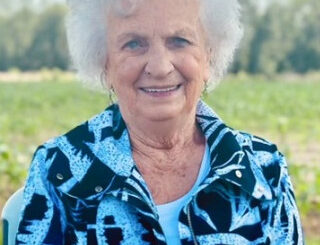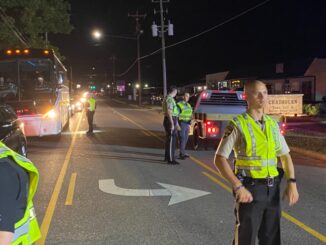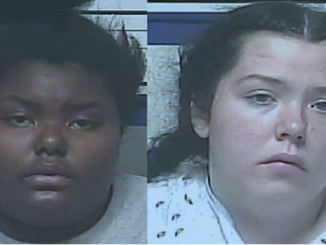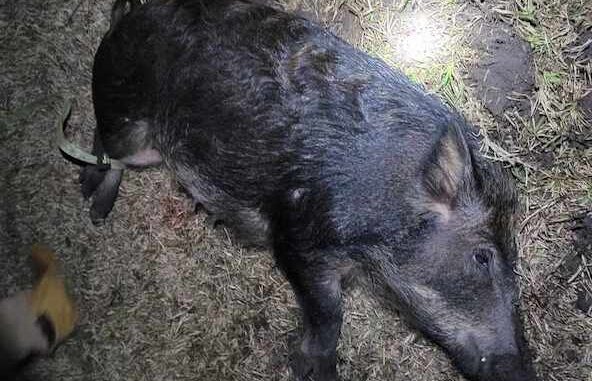
When rural residents relied on backyard hogs for food, January was once a popular time for hog killings.
Residents of southern Columbus County are having January hog killings of their own, for a different reason – to protect their property.
Pushed out of the deep swamps by high water, invasive feral swine are damaging property in Crusoe, Old Dock and Nakina.
“The river has been rising, and that’s pushing them out of the lowlands,” said Doug Smith, who frequently has requests from hunters who want to harvest hogs on his property along the Waccamaw River. “They’re a pest, and they destroy everything.”
Feral hogs are a growing problem throughout North Carolina, but especially in swampy areas in the southeast. With virtually no natural enemies outside of man and bears, a taste for everything from crops to small animals, and the ability to produce two to three litters per year, hogs have damaged the ecosystem in many parts of the country. Feral hogs can also carry parasites and diseases such as brucellosis and pseudorabies that can pass to domestic hogs. None of the hogs trapped by the U.S. Dept. of Agriculture in southeastern North Carolina have tested positive for either illness.
While feral hogs have been popular with many hunters around the area for decades, the population expanded after Hurricane Florence. Individual wild pigs and small herds have been reported around Fair Bluff, Whiteville Honey Hill, Bolton, Lake Waccamaw and Tabor City. State officials are concerned that the continued expansion of hogs into the Lake Waccamaw State Park and Green Swamp Preserve could negatively affect endangered plants like Venus flytraps.
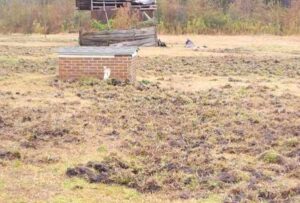
Hogs forage by rooting with their noses and tearing soil with their front feet to gain access to roots, worms and insects. They also raid groundnesting birds, and have been known to eat rabbits and other small mammals. They especially love corn piles used by hunters to attract deer in the fall.
When those piles are no longer being serviced by hunters – deer season ended Jan. 1 – hogs lose access to that easy food source and begin looking for more. Crops and lawns become popular targets.
As the Waccamaw River has risen recently due to heavy rains, more hogs have been pushed out of their preferred habitat and closer to humans.
Loretta McCumbee said she has frequently seen big hogs while searching for bottles and artifacts along the Waccamaw. Hogs have moved out of the lowlands into her neighborhood in recent days, causing major damage to homeowners’ lawns as well as crop fields. Hogs are sometimes killed in cemeteries where they root through the softer ground over graves.
“I have been spotlighting our yards after 2 a.m.,” McCumbee said. “I have seen six that are average size. Two are big ones.”
Her husband Gary shot one hog early Tuesday that was estimated to weigh 150-200 pounds.
Since hogs are an invasive species, the state Wildlife Resources Commission encourages their eradication by legal means. There are no closed seasons or bag limits for hogs. They may be taken at night with lights, electronic calls, bait and with hounds. General hunting rules apply. Hogs may also be trapped using corral traps, with the possession of a free permit from the WRC.
The nocturnal nature of wild hogs – especially when they have been previously hunted – makes them more challenging for some hunters. McCumbee said her husband killed Tuesday’s hog around the usual time they see them in the area – 2 a.m.
For more information about hogs and hoghunting, go to ncwildlife.org.












